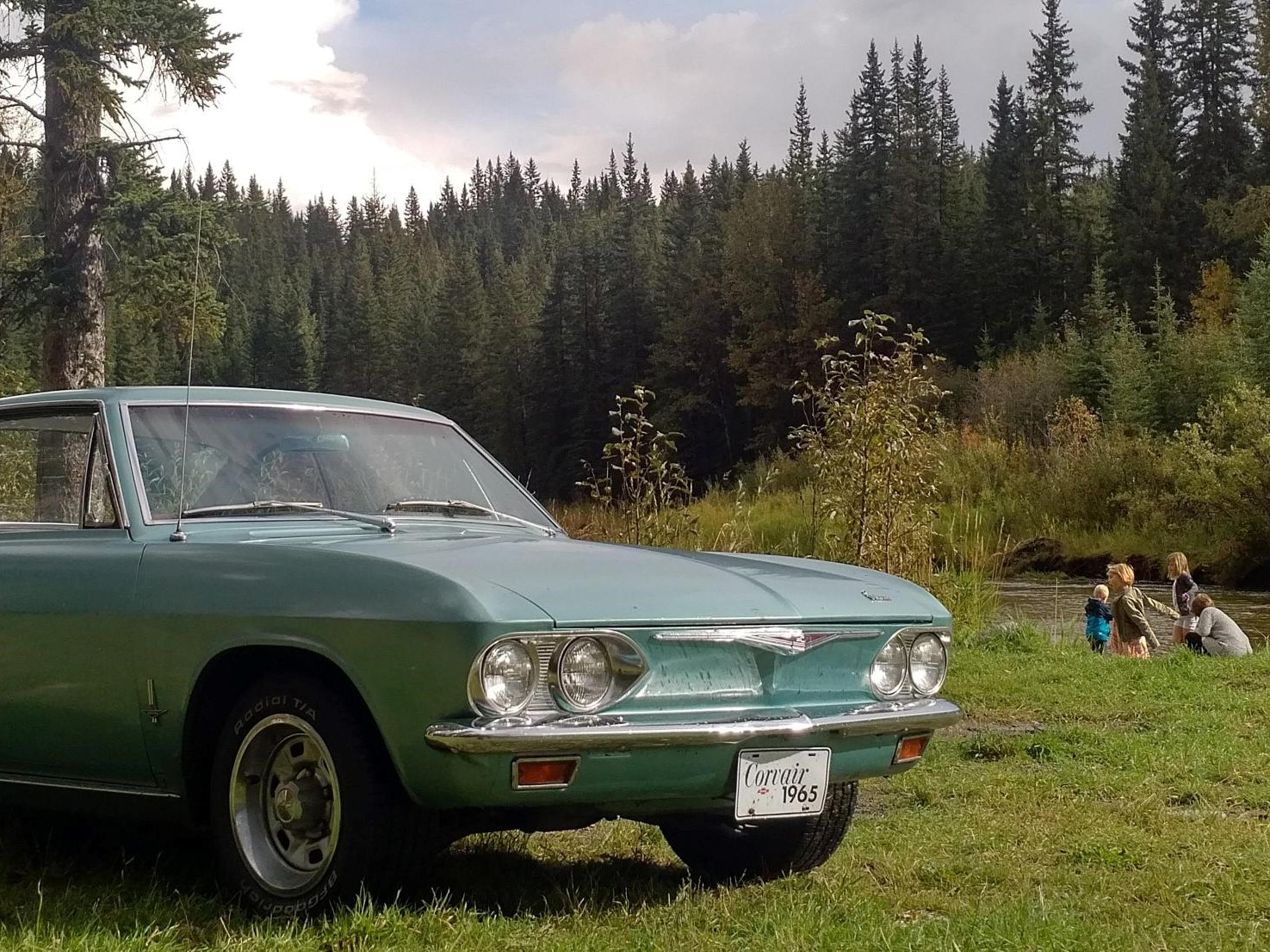I recently had the opportunity and cause to take my family’s 1965 Chevrolet Corvair Monza out from winter storage and prepare it for the upcoming season. For the last decade, the car has been the family’s preferred vehicle for ice cream hunting in the summer months. It’s a unique relic of the ‘60s, and the product of a design team that was tasked with making a small, economical family car to counter the popularity of Volkswagen and other compact car manufacturers. It was an experiment in the Coke-bottle styling that the era is known for and sported a unique (to American cars) powertrain and suspension, focused on fuel- and space-economy and efficiency of design.
There are many more who appreciate what the car was meant to be, and I meet many curious onlookers through my work with the Didsbury Car Club, whose annual Show & Shine is among the first of the year. The calendar looms as I get the car ready, as it does for our grain farming readers, though I know and trust the implications weigh greater on them than I.
As a child, I had aspirations to be an auto mechanic, or Auto Service Technician, as they’re known today. I enjoy exploring and learning about complex systems, and the intricacies of the automobile and the harmony required of its many systems to effectively perform have captured me for as long as I can remember. Back then, I read magazines, articles, technical bulletins and textbooks to learn more, consulted with friends, family and experts to gather experience and insight while testing my knowledge at home – helping to change hydraulic hoses on the loader tractor, swap out a clutch on the pickup, rebuild a carburetor on the grain truck, and more by the time I was 13.
As I got older and had my own vehicle, I enjoyed repairing it as it needed, and sorting through its occasional lapse in reliability. Repair was very structured – following a step-by-step process you could find in a manual. Diagnosing accurately took thought, examination, analysis and experience to do effectively. There was struggle, but great reward once the challenge was overcome. I relish work that improves performance, efficiency, economy, and reliability and this car has provided such unique opportunities while reciprocating great personal rewards.
I apply myself in a similar manner in my work with farms. I truly enjoy the opportunities my career has provided me to interact with and learn from a broad range and type of agricultural producer. That’s generally the easiest part, as producers are (rightly) so very proud of their work and their industry. They love to share and tell their story, often with an honest critique of what works best or perhaps could use a little help. Similar to my automotive passions, that’s where I have been successful in my career – listening for symptoms or needs, consulting with my experience and network for knowledge, examining assumptions, analyzing the data and making an informed recommendation on how to improve performance, efficiency, profitability and sustainability. My team at Backswath and I will all agree, there’s few things more rewarding than having had an opportunity to help a farm business achieve more than they had thought was possible at the outset – and we’re doing it every day of the year.
The days grow in length, the birds, buds and bumblebees have all returned, and there’s great anticipation of the coming season. Farms have their equipment tuned-up and ready for planting season, and automotive enthusiasts are doing the same with their beloved vehicles. I get to participate in both, and my excitement grows for the opportunities to connect, learn, share and advise in both spheres.
Whether we meet in the street or in the field, I hope we have occasion to enjoy our passions together, and make improvements along the way. To quote Ed Cole, General Manager of Chevrolet as the Corvair was designed and produced: “Kick the hell out of the status quo.”
By Blake Copley, Farm Management Practice Leader



